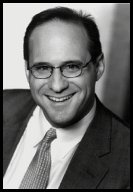We talked to linguist and dialect coach Doug Honorof about the use of accents and dialects in film. Honorof coaches actors and performers for film and television, commercials, voiceovers, and broadcast journalism.

Doug Honorof
Illusionists Extraordinaire
When it comes to the use of foreign language in an American film, Honorof says, “Actors do not need a language teacher at all. They are not learning a foreign language; they are just creating the illusion that they have learned one. What they need is an illusionist. Dialect coaches are illusionists extraordinaire.”
He goes on to say, “With accents of English, when time permits, I try to get the actor speaking as the character in accent improvisationally, before working the dialogue and getting off book.” When coaching an actor to act in a language unknown to the actor, Honorof says, “… obviously, we can’t approach the problem that way. The actor would not even know how to use the melody of the voice to express an emotion the way a native-speaker would. In such cases, we have to work phonetically.
“I have all sorts of tricks for writing up the dialogue in eye dialect or phonetic transcription, for preparing recordings for the actor to practice with, for helping the actor remember the sounds, and for prompting via earwig or nearby on set and, ultimately, for ‘fixing it in post’.
“But ultimately, I am not teaching the actor a language. They don’t have to speak the language. They just have to look like they do. It is all smoke and mirrors with foreign language work.”
Accent Coaching on Low-Budget Films
We asked Honorof if a filmmaker with little or no budget should simply avoid dialects and accents. Is there an effective workaround? “When you need a coach on set, you need a coach,” he says. “Although coaches generally offer a heavily discounted day or week rate for guaranteed holds, it can still be costly for a very low-budget production to keep a professional dialect coach on set for an entire shoot. Some productions reduce their costs by scheduling scenes with dialect needs back-to-back or in blocks. Others will hire a coach to work with the actor in prep only – and then try not to change the lines at the last minute.”
Technology can provide effective options. On very low budget pictures, Honorof can coach for a few hours using Skype. “Many coaches have a lower rate for distance coaching,” he says, “and these days web-conferencing tends to be very reliable if you have broadband available on set.
“In the worst-case scenario,” he says, “I have been paid by actors out of their own pockets, but there has to be some communication with the director, so that can’t really happen on the sly. In my opinion, the emerging filmmaker should seriously consider at least offering to split the cost with the actor; it is really not the actor’s responsibility to pay crew. If the actor is a member of SAG/AFTRA, you will want to have a conversation with the union about current rules regarding that kind of thing.”
Dialect Training in Acting Schools
Honorof commented on acting schools and dialect training. “In some of the major conservatory programs,” he says, “actors actually have several years of speech work. However, most of the actors I work with in film and television do not have that training. I offer five-day dialect-preparedness training workshops to give actors a leg up on their next dialect gig. I basically compress several years of conservatory speech work into a week. It isn’t quite the same, as you can imagine, but actors who complete that training pick up accents on-set or at the last-minute for auditions much more quickly and with more consistency, and they retain the accents better. There is a technique to it.
“I also teach dialects one-on-one by Skype,” he says, “covering essentially the same material over a longer period of time. If actors have already learned voices in the dialect before, that helps, too. As an actor, you should have some dialects in your back pocket based on your casting type, but there are so many possible voices out there, and you can’t learn them all in advance. Still, the more accents you know, the easier it is to learn the next one. Even when actors show up with the dialect in hand, we tweak. Every character needs a unique voice.”
Dialect in Post
Honorof says he has never been involved with a feature film where they dubbed a dialect or accent in post production, rather than training the actor. “In some countries,” he says, “they dub instead of subtitling when the original sound track is in a foreign language. With films intended for US release, the actor often comes into the post-production studio to pick up specific lines; lines often get added after the creatives look at a rough cut.
“With film, sometimes, and especially TV, the lines can change right up to – and even during – the shoot, so post is actually a great opportunity to rework lines that the actor did not have time to prepare.
“I have also seen commercial work where a single actor or model was used on camera, and then coached just to have the lips move correctly for a number of different languages with the intention of having various native-speakers dub the lines for broadcast in foreign markets. Of course, there are also sound-alikes used when a celebrity cannot return to the studio for a post session, but that is a different thing.”

Doug Honorof
Casting for Dialect Actors
“Most people in the business are sufficiently skeptical about a great many things,” Honorof has said in his blog, “except, oddly, when budding actors list dialects under SPECIAL SKILLS. Certainly, some actors have serious dialect training and talent, and would not exaggerate their dialect skills on their resumés. Others can legitimately list dialects they do poorly if they call them ‘comedic dialects‘.
“It is true that anyone can tell when the dialect work in English is so bad that it gets in the way of the acting — that sort of thing comes out in an audition. But when an actor lists a foreign language, you need to be prepared to ask some hard questions, even if an agent or manager swears the actor speaks the language. Does the agent or manager speak the language? Has the agent or manager tested the actor? I am speaking from experience; test all claims.”
The impact of uninformed or poorly done dialect can be serious. Honorof points out that national or dialect distinctions can be politically sensitive in ways a filmmaker might not anticipate. “If so,” he says, “you can be sure you’ll hear about it after the fact.”
However, sensitivity is key. “I don’t think any accent is intrinsically ‘off limits’,” he says. “If film is art, you can’t really make hard-and-fast rules. But certainly there is a fine line between an iconic archetype and an offensive stereotype, and context is usually the deciding factor. A sensitive portrayal of a politically sensitive accent can help, and a dialect coach comes in handy there. We know how to help the actor find something real no matter how stereotypically or offensively the dialogue is written.
“This being said, when the dialogue is unsalvageable as written, the coach will end up having a conversation with the director about that – a conversation that some actors may be uncomfortable having. It often turns out that the writers don’t mean for the part to be played offensively; they just don’t know the dialect and don’t know how to make the language sound real. Writers have asked me to propose changes to lines much more frequently than one would expect. Sometimes in the case of broad comedies, offense is exactly what is intended, though.”
An Increasingly Interconnected World
“Look, I get it,” says Honorof. “The biggest audience for English-language film and TV is mostly not going to know that the Portuguese is wrong, but in an increasingly interconnected world, what impression does sloppy screen language work give off about Hollywood’s attitudes toward the rest of the world? And what if the studio ends up signing an unpredicted distribution deal for an international release after you have shot? Not all lip movements can be dubbed over effectively. Remember the original Godzilla movies?
“You can always bring in a coach, but it helps to know in advance whether you will need one. And here is a tip on how to find out. If you want a quick proof-of-concept, ask the actors to submit their voice-over demos with examples of the dialect or language you care about. Most actors who speak more than one language are in demand as voice talent, and will have a demo. A dialect coach can tell you how they sound on the demo in about thirty seconds.”
Advice for Actors
“If you are an actor and new to the business, you might imagine that film and TV people part company when they are wrapped, and never speak again, but, actually, it is a small world and you do build a reputation. You want it to be a reputation for reliability and integrity. Do you really speak Kiswahili all that well? If not, be specific: Kiswahili (beginner) or Kiswahili (read and write; slight accent) or Kiswahili (two years in high school). You might be cast anyway, and offered a coach!”
See Doug Honorof’s blog for more on his background and expertise.
